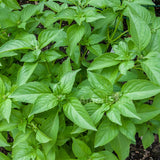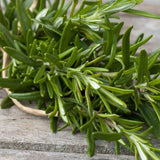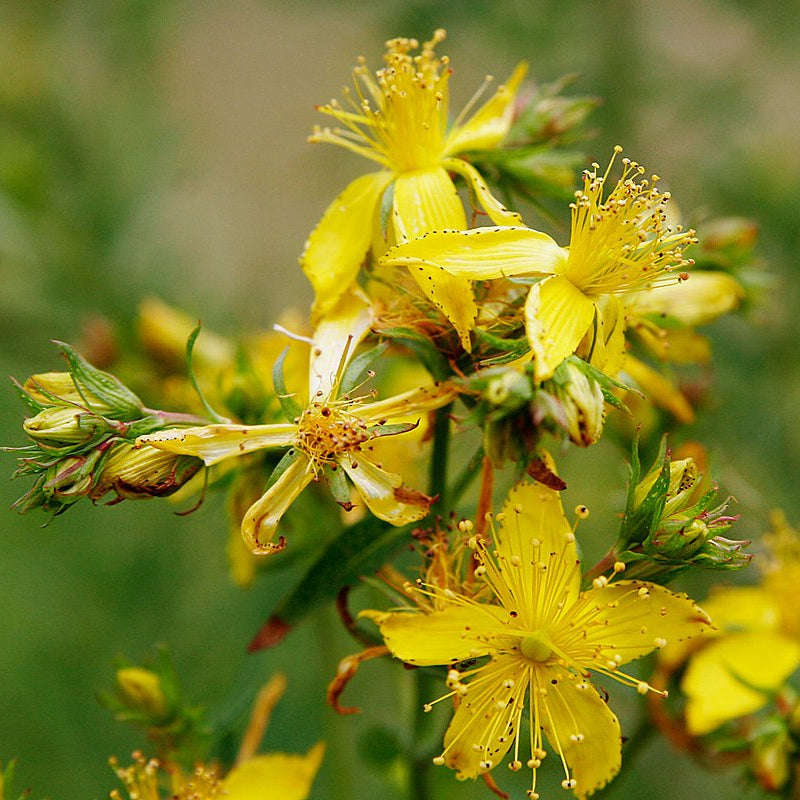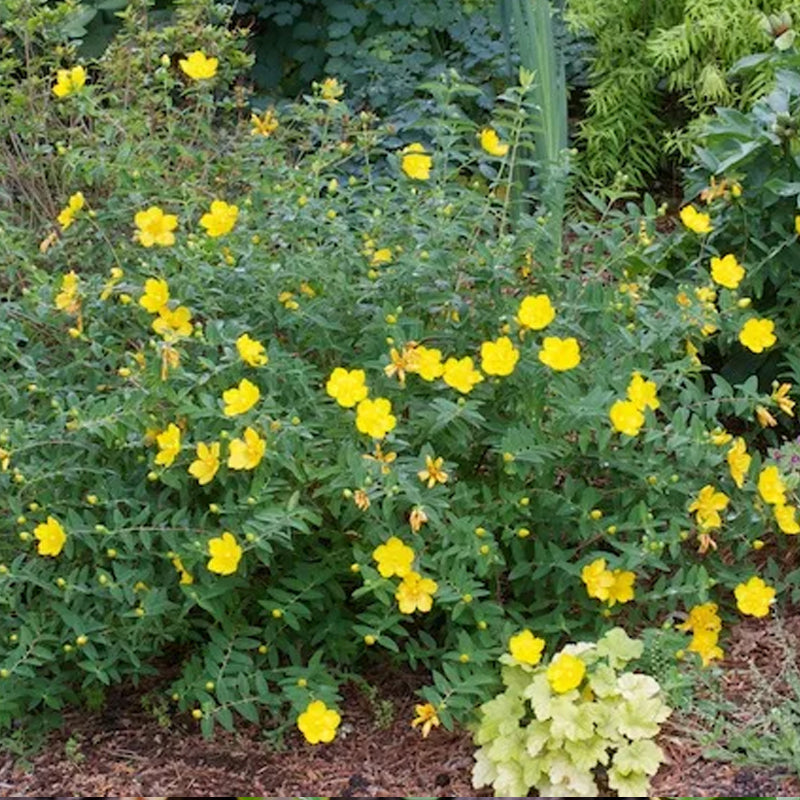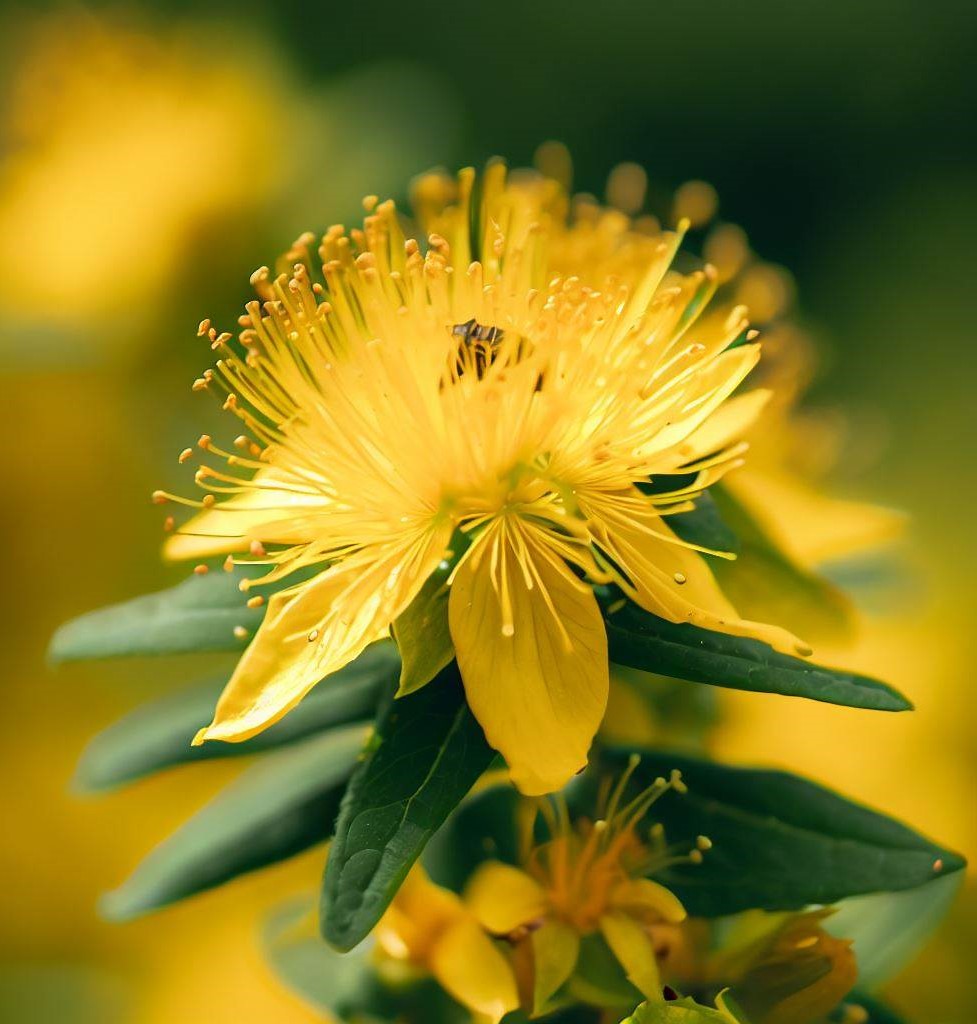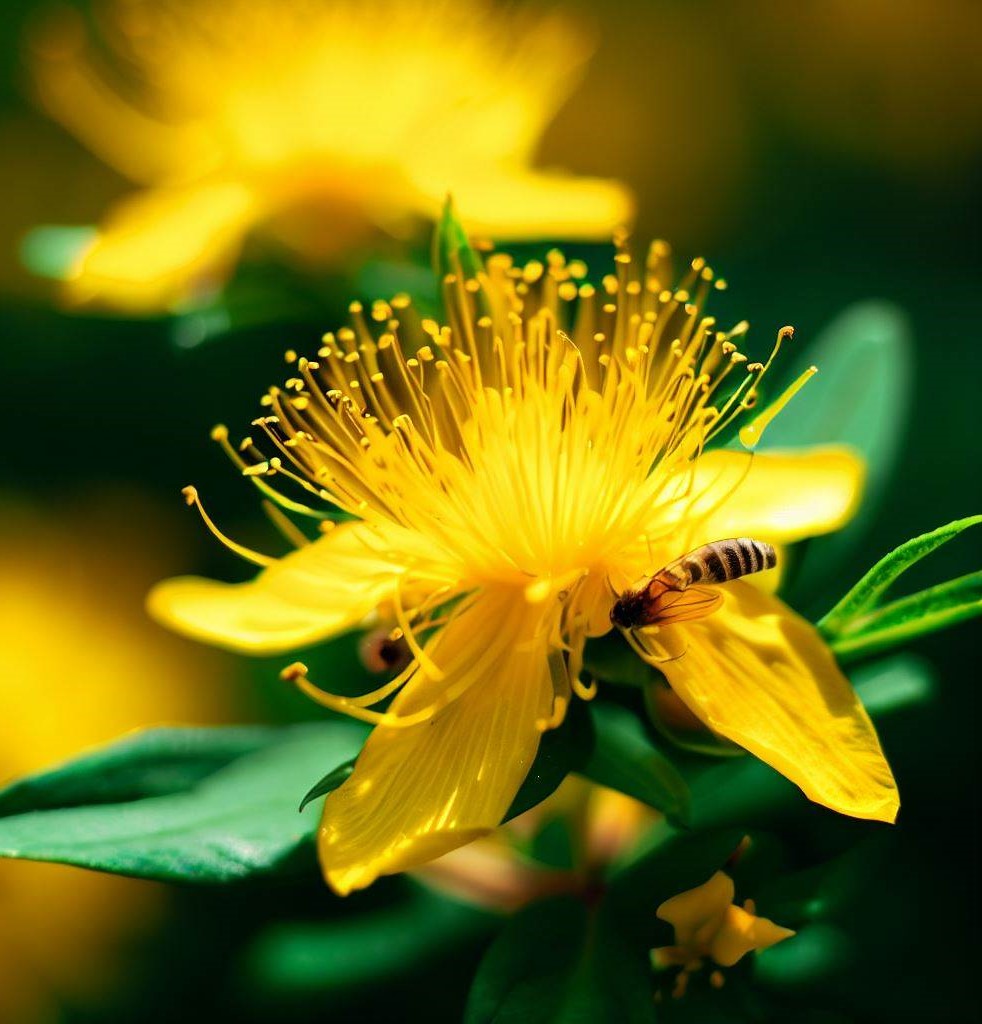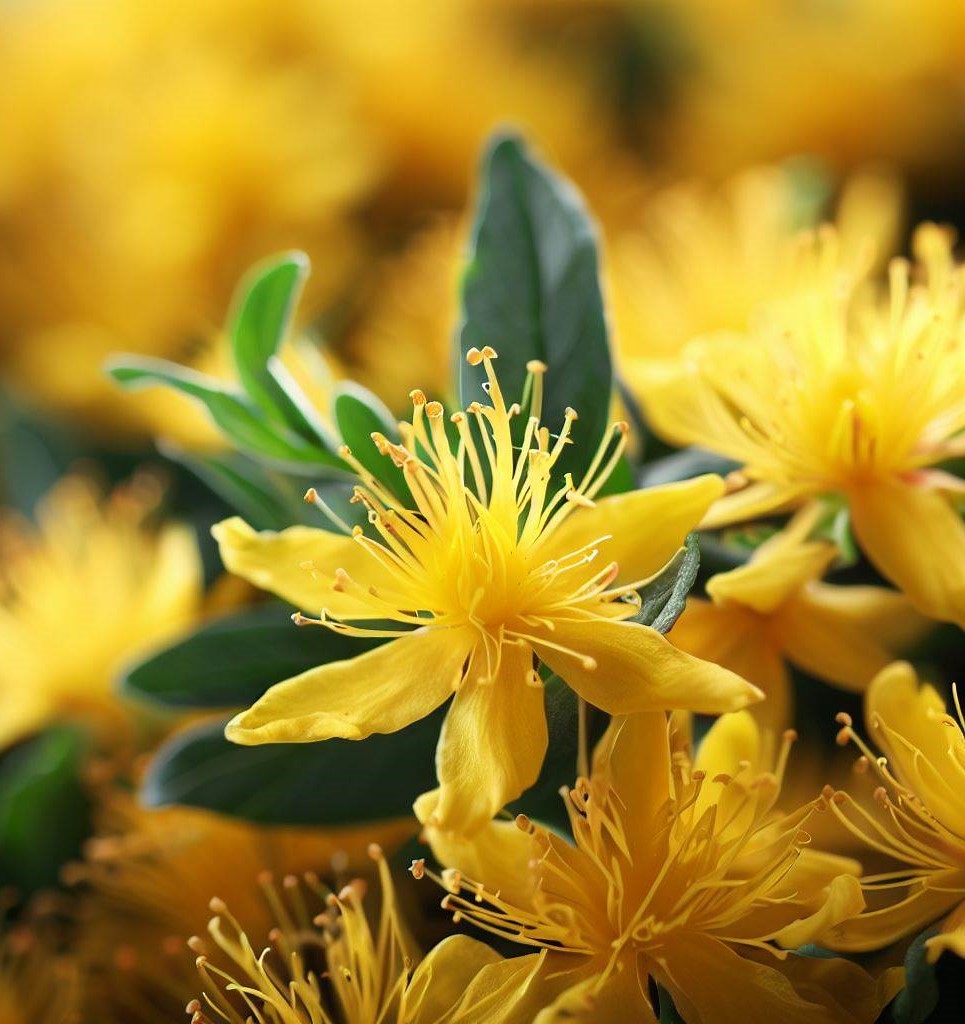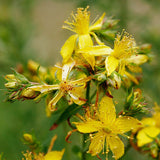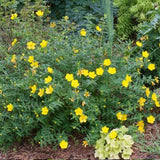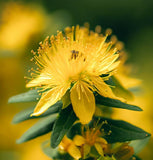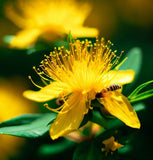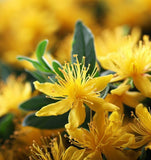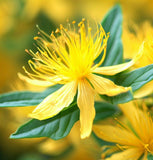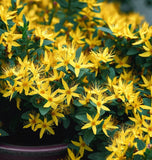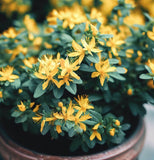St. John's Wort (Hypericum perforatum)
St. John's Wort (Hypericum perforatum) is a flowering herbaceous plant that belongs to the Hypericaceae family. It is native to Europe but is now naturalized in various regions around the world. St. John's Wort is known for its medicinal properties and has been used for centuries in traditional herbal medicine.
The plant typically grows to a height of 30-90 cm (12-35 inches) and produces bright yellow flowers with five petals. The leaves are opposite, narrow, and dotted with translucent glands that appear as tiny perforations when held up to the light, hence the species name "perforatum."
St. John's Wort contains several active compounds, including hypericin and hyperforin, which are believed to contribute to its medicinal effects. It has been used to treat a range of conditions, primarily depression and anxiety. It is thought to work by influencing certain neurotransmitters in the brain, such as serotonin, dopamine, and norepinephrine. However, it's important to note that the effectiveness of St. John's Wort in treating depression is still a topic of debate within the medical community, and its use should be discussed with a healthcare professional.
In addition to its potential antidepressant properties, St. John's Wort has been used traditionally for its anti-inflammatory, antibacterial, and antiviral effects. It has also been applied topically to aid in wound healing, relieve minor burns, and alleviate nerve pain.
It's crucial to exercise caution when using St. John's Wort, as it can interact with various medications. It may reduce the effectiveness of certain prescription drugs, including birth control pills, antidepressants, anticoagulants, and immunosuppressants. It is always recommended to consult with a healthcare professional before using St. John's Wort, especially if you are taking other medications.
St. John's Wort is typically prepared as a tea, tincture, or in capsule form. Commercial preparations are available, and the recommended dosage and usage instructions should be followed.
From a gardening perspective, St. John's Wort can be cultivated in sunny locations with well-drained soil. It is a hardy plant and can thrive in various climates.
In conclusion, St. John's Wort is a well-known medicinal herb that has been traditionally used for its potential antidepressant and other therapeutic properties. However, it is important to approach its use with caution and seek professional advice due to potential interactions with medications.
Botanical name : Hypericum perforatum
Common name : St. John's Wort
Life cycle : Perennial in Zones 3-8
Days to maturity : 90-120
Light requirement : Full sun
Planting time : Spring/Summer
Sowing method : Direct sow
Planting depth : ¼"
Plant spacing : 20-24"
Ships : Year-round
Average seed per ounce : Approx. 1,000,000

